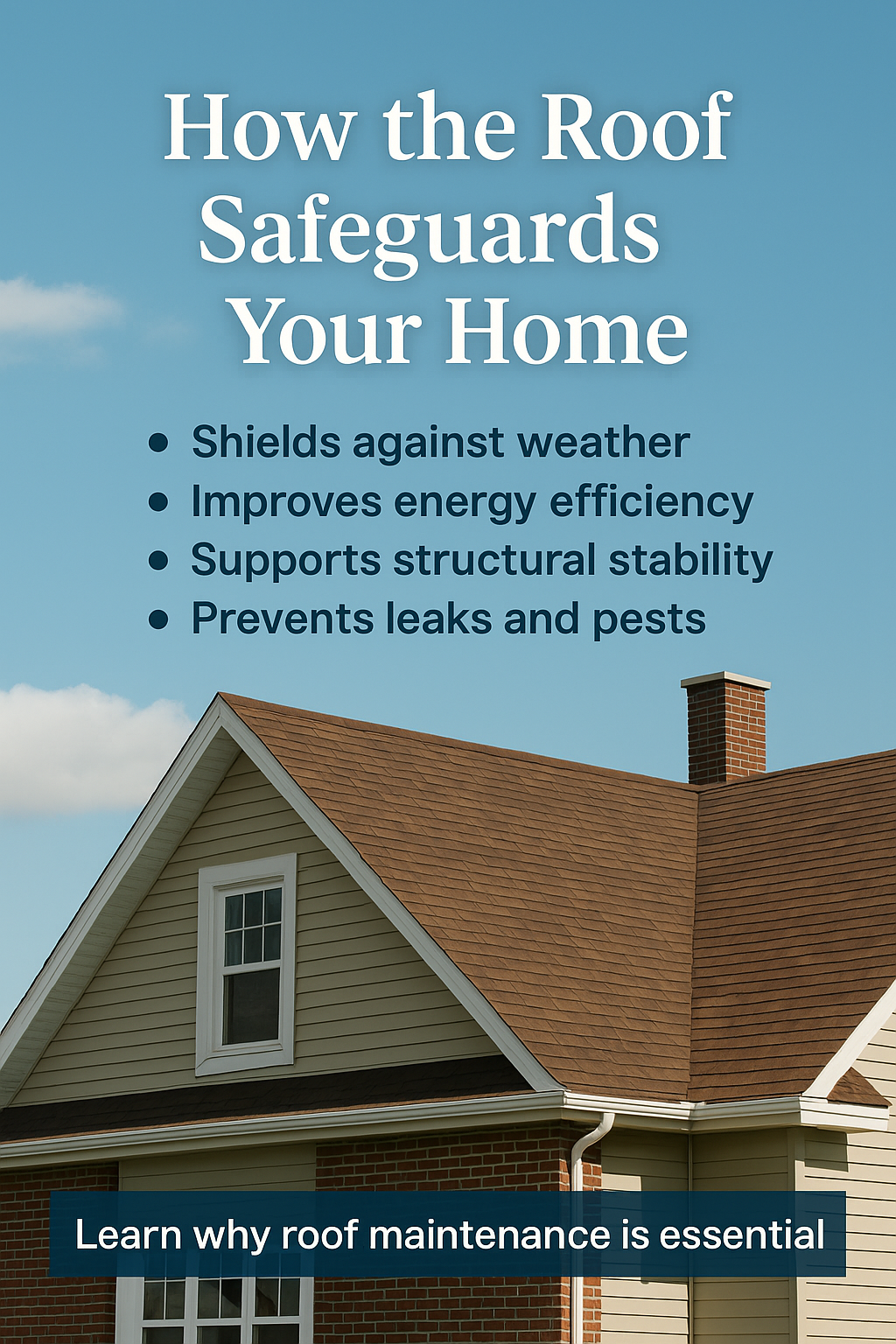Explore how roof maintenance protects your home from weather, leaks, and pests while improving energy efficiency, structural stability, and curb appeal. Learn why caring for your roof boosts comfort and value.

Disclaimer: this post may contain affiliate links, and every purchase made through these links will give me a small commission (at absolutely no extra cost for you!) AS AN AMAZON ASSOCIATE AND REWARDSTYLE MEMBER, I EARN FROM QUALIFYING PURCHASES. See Privacy Policy for additional info.
Your roof is one of the hardest-working parts of your home, quietly protecting you from the elements day after day. Yet, it's often overlooked until something goes wrong-like a leak, missing shingles, or an unexpected spike in energy bills. A well-maintained roof is essential for comfort, safety, and preserving the structural integrity of your house.
More than just a cover overhead, your roof plays a major role in energy efficiency, weather protection, and even your home's curb appeal. Proper insulation and ventilation under the roof keep your home cooler in summer, warmer in winter, and reduce strain on HVAC systems. A neglected roof, on the other hand, can lead to water damage, mold growth, and expensive repairs that could have been avoided with regular care.
In this post, we'll explore the many ways your roof safeguards your home-shielding it from rain, snow, pests, and noise-while supporting its structure and boosting its value. By understanding its importance, you'll see why roof maintenance should be a top priority for every homeowner.
How the Roof Maintenance Safeguards Your Home
A roof can only serve its purpose when in good condition. As such, minor issues left unchecked often turn into costly repairs, and neglect can shorten the lifespan. Consider getting expert help. For instance, ARP Roofing offers thorough inspections and expert guidance. To understand why a roof deserves such care, consider the many ways it protects a home.
Shields Against Weather
The most obvious role of a roof is to protect the home from the elements. Quality roofing materials deflect water, channel it toward gutters, and prevent moisture from seeping into the structure. In hot climates, the roof also absorbs or reflects heat from the sun, keeping interior spaces comfortable.
Maintains Energy Efficiency
A roof plays a direct role in the home's energy performance. Insulation beneath it holds warmth indoors during cold months while also keeping summer heat from penetrating living spaces. Paired with proper attic ventilation, this balance reduces moisture buildup and prevents hot air from straining cooling systems.
Some materials, such as reflective shingles or specialized coatings, add another layer of efficiency by deflecting sunlight. Together, these features lower energy use, reduce the load on HVAC equipment, and create a more comfortable living environment.
Supports Structural Stability
The way a roof spreads its weight across beams and supports helps keep the walls steady and reduces the risk of them shifting out of place. When properly built and maintained, it withstands heavy snow loads and resists the strain of high winds. If neglected, weakened rafters, damaged trusses, or sagging sections can threaten the integrity of the entire structure. In this way, the roof functions not only as protection from above but also as a reinforcement for the house as a whole.
Prevents Leaks and Water Damage
Water intrusion is one of the most destructive threats to any home. A sound roof stops rain and melted snow from seeping into ceilings, insulation, and drywall. Even a small leak can trigger mold growth, rot, or structural decay if ignored. Flashing around chimneys, vents, and skylights plays a vital role in sealing vulnerable points. Regular inspections help ensure these defenses remain intact, preserving the house against costly and often hidden water damage.
Blocks Pests and Wildlife
A roof also acts as a barrier against animals and insects. Birds, rodents, and pests often look for ways to enter attics or crawl spaces, especially when shingles or vents are compromised. Once inside, they can chew wires, nest in insulation, or spread contaminants. A well-maintained roof with secure coverings keeps these intruders out, protecting both the physical structure and the health of its occupants.
Reduces Outside Noise
Dense materials, insulation layers, and sealed construction help block traffic sounds, storms, or neighborhood activity. This noise reduction creates a calmer environment, especially in busy urban or suburban settings. This benefit often goes unnoticed at first, but once experienced, homeowners quickly recognize its value.
Enhances Curb Appeal and Value
A roof is one of the first things people see when approaching a property. As such, clean lines, fresh shingles, and well-chosen colors all contribute to curb appeal. For buyers, a well-maintained roof confirms maintenance practices. Appraisers also place significant weight on the condition of the roof when determining overall market value.
Conclusion
A roof does far more than cover a house. It works quietly every day to shield against the weather, preserve energy, strengthen the structure, and protect the people inside. When cared for, it also brings peace of mind, greater comfort, and lasting value. Recognizing these roles makes it clear why regular maintenance and expert support are essential.









Leave a Reply